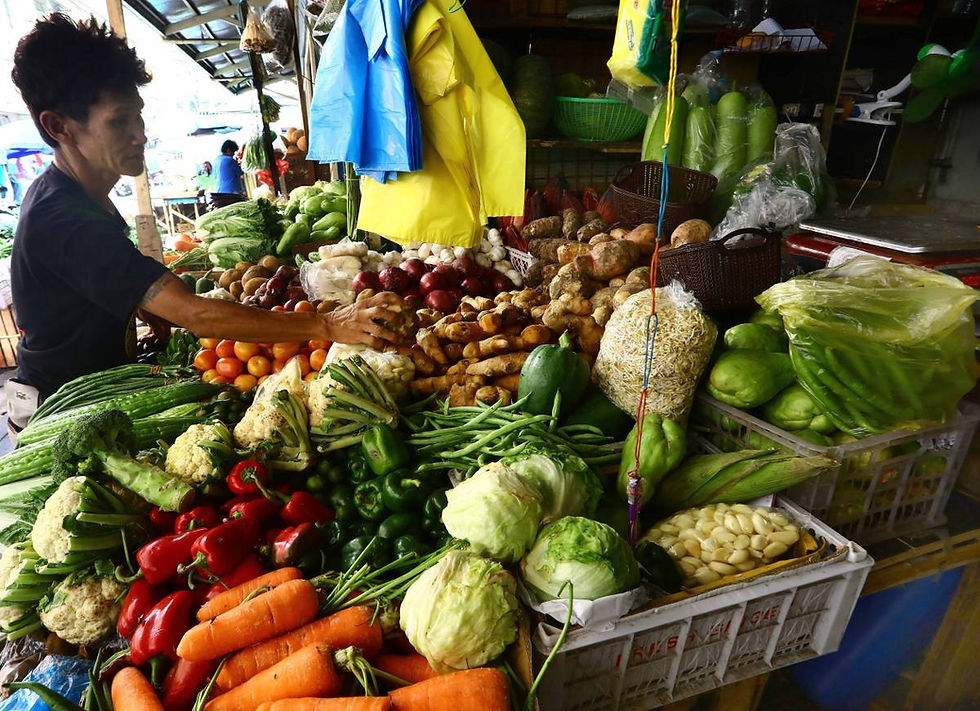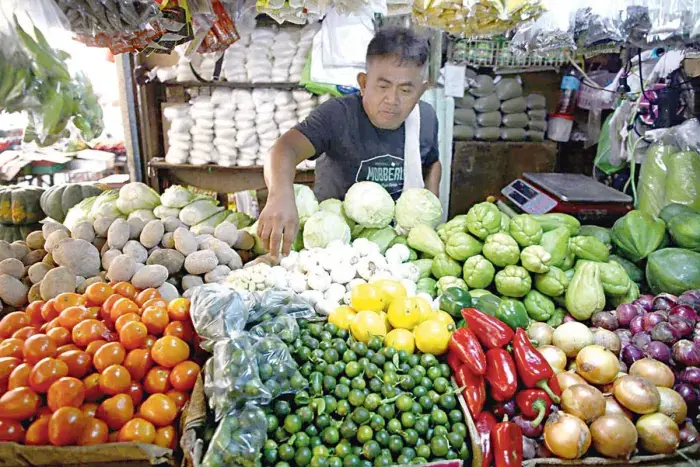Economists hike inflation forecasts
- Ziggurat Realestatecorp

- Sep 7, 2023
- 4 min read
A faster-than-expected Philippine inflation rate in August has prompted several economists to raise their forecasts for this year and 2024.
Inflation unexpectedly accelerated for the first time in seven months in August, as food and transport costs rose. Headline inflation quickened to 5.3% in August from 4.7% in July, ending six months of decline.
Nomura Global Markets Research raised its Philippine inflation projection to 5.9% for this year from 5.3% previously. It also hiked its 2024 inflation forecast to 3.6% from 3.1%.
GlobalSource Partners also upwardly adjusted its inflation forecast to 5.8% for this year from 5.5% given in August.
Pantheon Macroeconomics hiked its inflation projection to 5.6% (from 5.4% previously) for 2023 and 2.8% (from 2.6%) for 2024.
Also, Citigroup, Inc. raised its inflation expectation for this year to 5.6% from 5.4% previously. It hiked its 2024 inflation forecast to 3.1% from 2.9% previously but kept its 3.3% projection for 2025.
The BSP currently sees inflation averaging at 5.6% for this year before easing to 3.2% for 2024.
Nomura Chief Association of Southeast Asian Nations (ASEAN) Economist Euben Paracuelles said in a note that risks to food inflation have materialized early.
In August, food inflation alone quickened to 8.2% from 6.3% in July amid a spike in rice and vegetable prices.
“We expect upward pressure on food prices to intensify in the coming months owing to the ongoing El Niño phenomenon and the lagged effects of rising international food prices, which are likely to be exacerbated by increased protectionism among food exporters,” he said.
The El Niño weather event is expected to strengthen towards the latter part of the year and persist until the first quarter of 2024.
Citi said inflation expectations have risen due to elevated food prices, but inflation should return to the BSP’s 2-4% target band by the fourth quarter.
Nomura also raised its core inflation forecast to 6.4% from 6.2% previously, amid likely spillovers from high food and fuel prices. However, it noted that second-round effects may be more limited due to weakening demand.
Core inflation, which excludes volatile prices of food and fuel, eased to 6.1% in August, from 6.7% in July, but above 4.6% in the same month last year.
Nalin Chutchotitham, economist for the Philippines at Citigroup, Inc., said in a note on Wednesday that the country is still vulnerable to rice inflation.
Rice inflation accelerated to 8.7% in August from 4.2% in July, its sixth straight month of increase. It was also its fastest pace since the 9% print in November 2018 when the country experienced a shortage of rice.
Ms. Chutchotitham said recent typhoons and El Niño could impact rice supply in the second half and up until next year.
“The government said it will allow more imports to ensure adequate supply, but the private sector appears to be waiting for global prices to stabilize before securing more imports,” she added.
RICE PRICE CAP
Analysts said the recently imposed price cap on rice may help alleviate inflationary pressures.
“Government measures such as the price ceiling on rice and a possible reduction in import tariffs should help ease these pressures, but likely only temporarily owing to the lack of fiscal space,” Nomura’s Mr. Paracuelles said.
The government on Tuesday began implementing a price ceiling of P41 per kilogram for regular milled rice and P45 per kilogram for well-milled rice, as it sought to combat price manipulation and hoarding.
“The authorities are hoping to nip this renewed upward pressure in the bud… (rice) is a staple in the Philippines and, together with vegetables, was mainly to blame for the latest leap in prices,” Pantheon Chief Emerging Asia Economist Miguel Chanco said in a Sept. 6 report.
He noted that September inflation data would show if the price ceiling is effective in relieving upward pressures or if it will “inadvertently lead to widespread shortages.”
“Nevertheless, the longer-term outlook for food inflation appears benign, as it is yet to reflect fully the more subdued gains globally, which leads by roughly half a year. The action in food prices last month masked big crosscurrents in oil-sensitive components,” he added.
GlobalSource analyst Marie Christine Teng in a note on Sept. 5 said that the price ceiling will be able to arrest the rapid increase in prices.”
“However, forecasts suggest that rice stocks will still be tight even as the country heads into another El Niño weather disturbance later this year. Hence, prices may stay high, especially if import costs remain higher than the price caps,” she added.
POLICY
Meanwhile, analysts said the BSP is unlikely to end its policy pause despite the quicker August inflation.
“In terms of monetary policy, we maintain our forecast that BSP will leave its policy rate unchanged at 6.25% over the next few months, although we see a rising risk of BSP resuming its hiking,” Mr. Paracuelles said.
The Monetary Board last month paused for a third straight meeting, keeping its key policy rate at a near-16 year high of 6.25%. From May 2022 to March 2023, the central bank hiked benchmark interest rates by 425 basis points (bps).
Pantheon Macroeconomics’ Mr. Chanco said that the recent inflation print is “unlikely to have a bearing on the BSP’s current pause.”
Citi’s Ms. Chutchotitham said that she does not expect further rate hikes from the BSP amid easing core inflation, weak second-quarter growth, and the government’s efforts to bring down rice prices.
“We continue to expect no change in the policy rate through early 2024. The BSP had cautioned about upside risks to inflation, but several factors would support the BSP’s continued pause,” she added.
Mr. Paracuelles said the central bank may be encouraged to resume its tightening cycle if core inflation stops declining.
“For now, despite the weakening growth outlook, BSP will likely maintain its hawkish rhetoric, underscoring that it remains vigilant against inflation risks and that it will continue to pledge its readiness to act if conditions warrant,” he added.
The Monetary Board is set to meet on Sept. 21.
Source: Business world





Comments